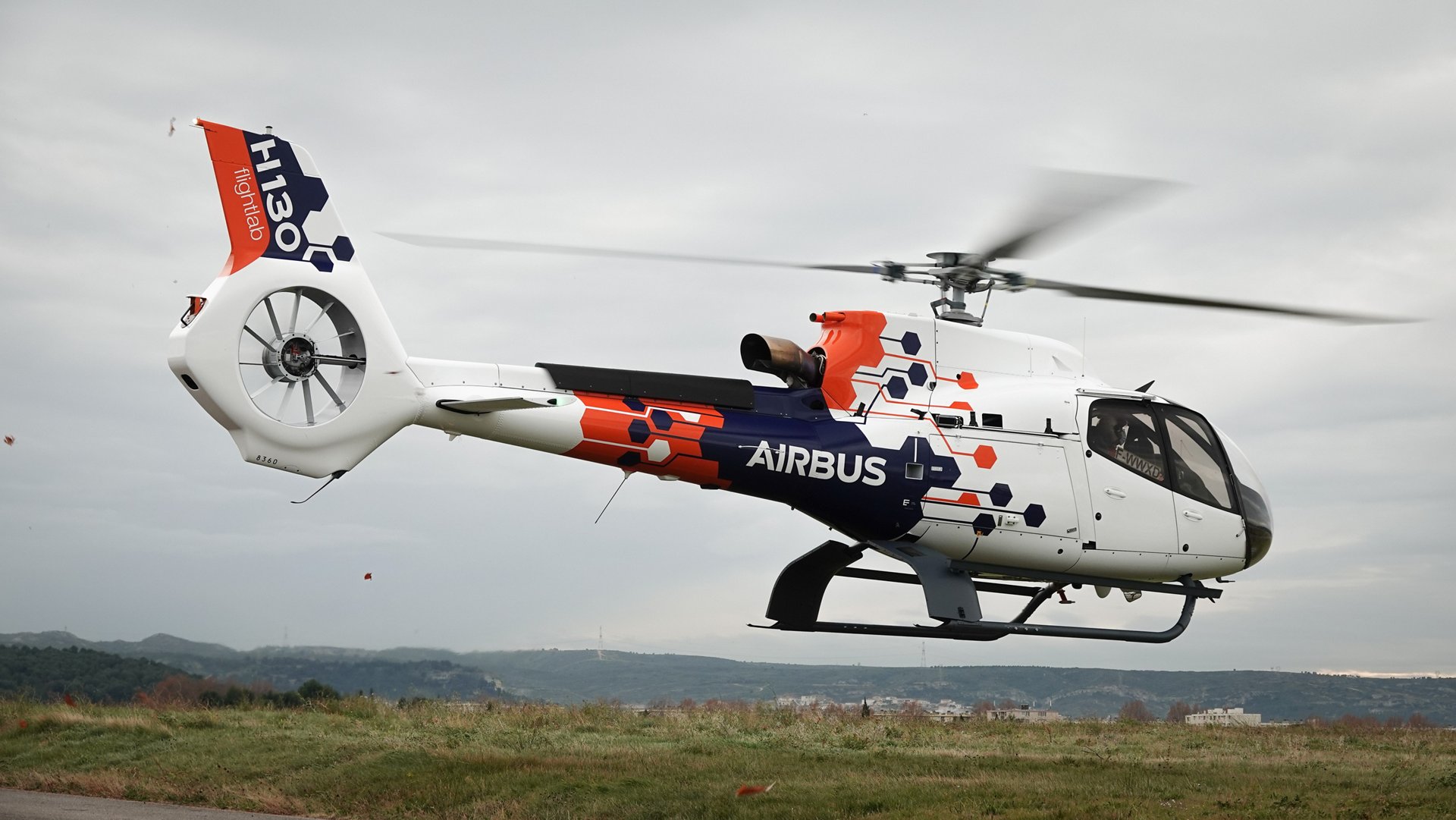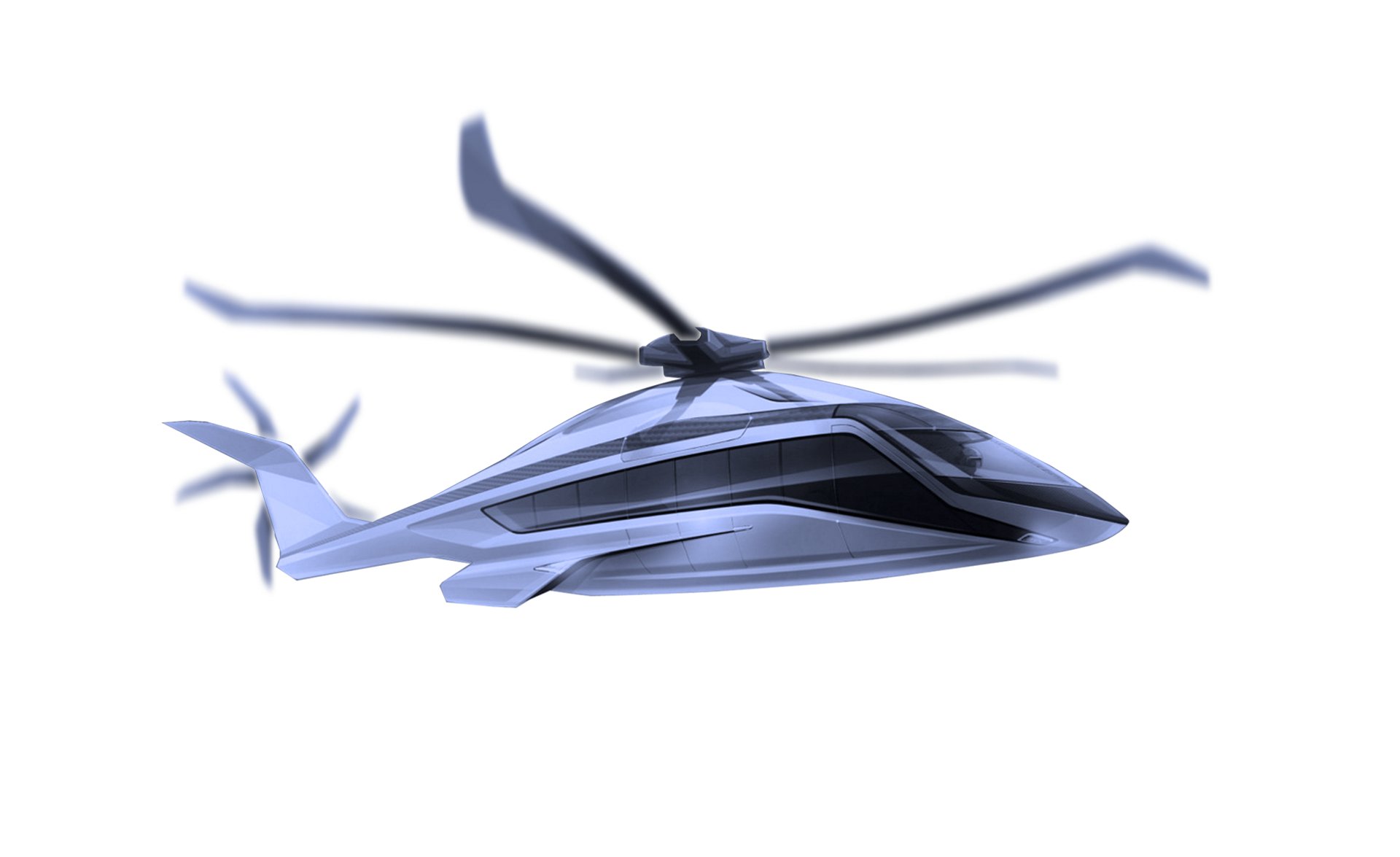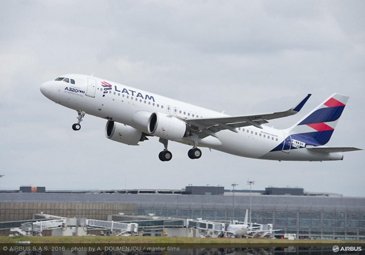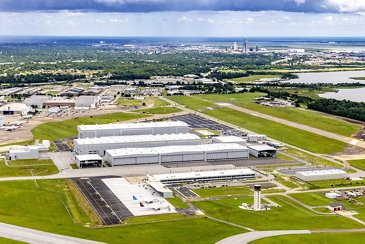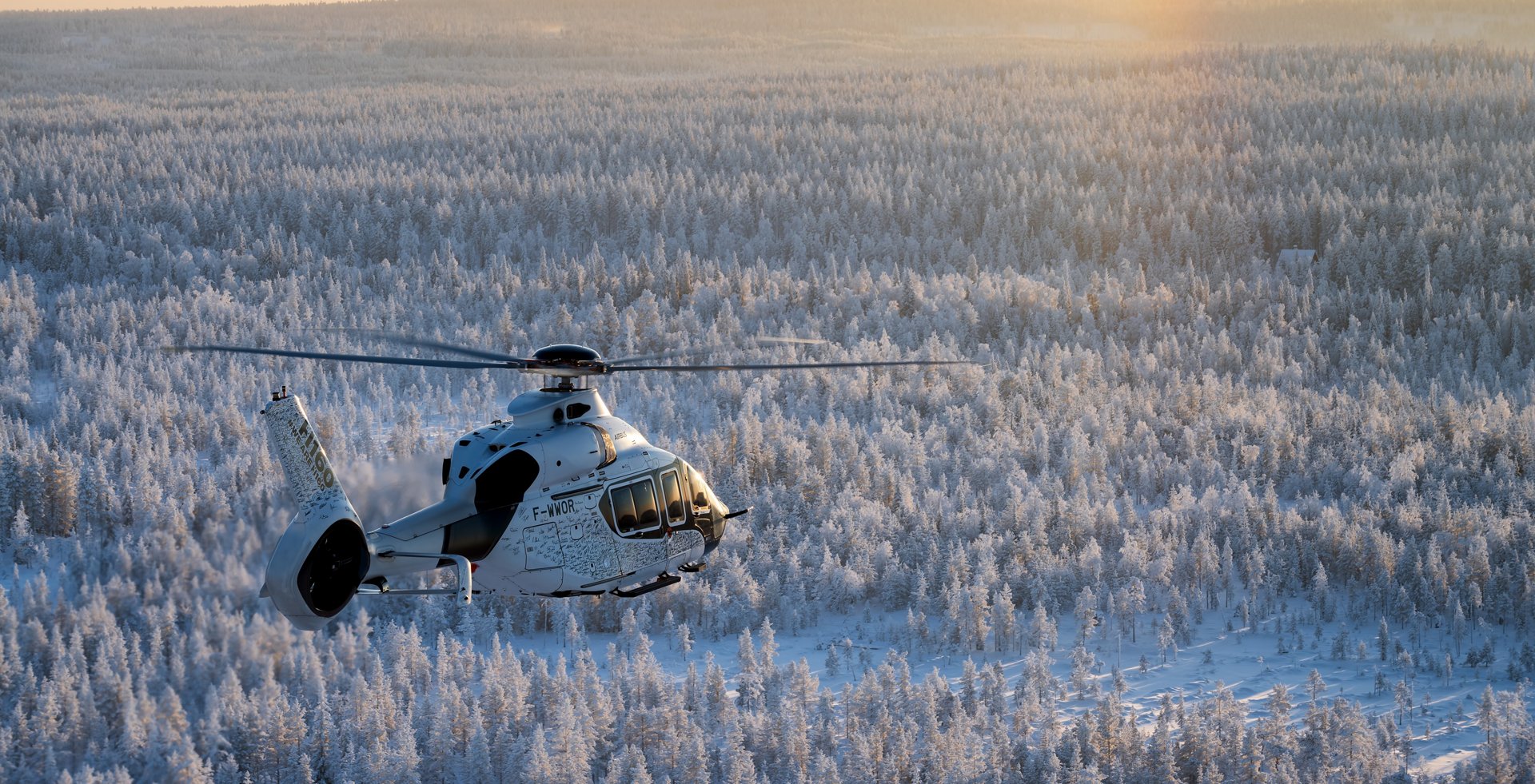
Decarbonising helicopters
Delivering more power with fewer emissions
Over the past 50 years, helicopters’ CO2 emissions have been reduced by 50% thanks to a variety of engine innovations that deliver more power with fewer emissions. At Airbus, we are committed to taking more ambitious steps to reduce the environmental footprint of our helicopters to bring us closer to net-zero emissions.
Today’s helicopters play a key role in missions that help preserve the environment, such as firefighting operations or scientific projects requiring air transportation. Pioneering zero-emission flight is the latest area in which helicopters are aiming to make significant contributions.
Helicopters account for less than 1% of the aviation industry’s CO2 emissions, but efforts are underway to continue to reduce this figure. Research has shown that fuel is the main source of CO2 emissions (95%) throughout a helicopter’s lifecycle.
Thanks to joint efforts with engine manufacturers over the last five decades, the compression ratios and efficiency of helicopter turbines have increased to deliver the following results:
- The newest-generation engines offer three times more power and a 50% reduction in CO2 emissions compared to their counterparts 50 years ago.
- Our next-generation twin-engine H160 benefits from a 15% reduction in fuel burn compared to the previous class of engines, thanks to the Safran Arrano engine.
- Additional fuel savings can be attributed to new vehicle aerodynamics and mass improvements, which are already in place on the current range.
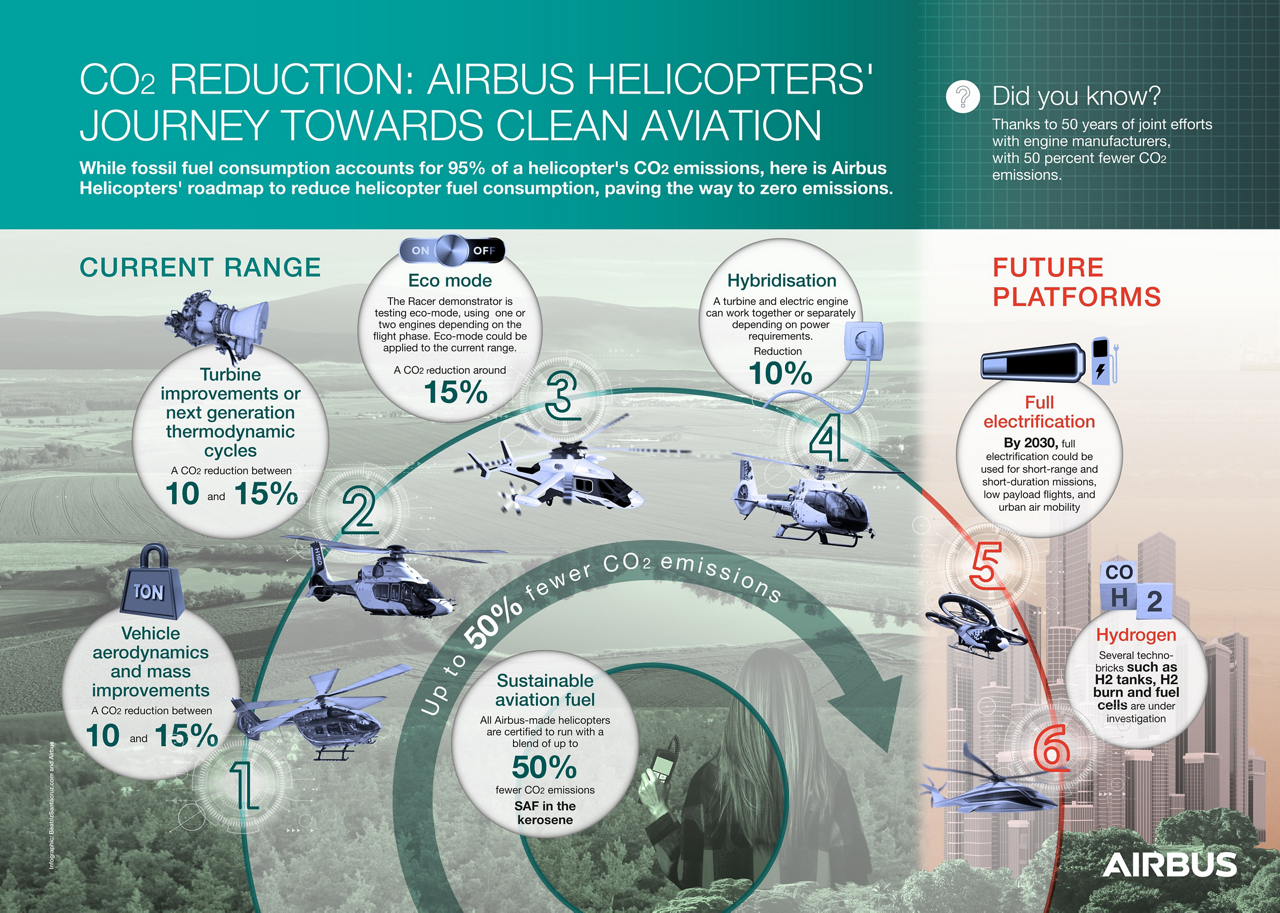
Airbus Helicopters is involved in a variety of research projects that aim to reduce helicopters’ CO2 emissions. A key example is the European Union’s Clean Sky programme.
- Clean Sky 2: Working with 40 partners in 13 European countries, Airbus Helicopters has developed the high-speed helicopter demonstrator Racer, which aims to have the best trade-off between speed, cost-efficiency and mission performance. The current helicopter product range could also benefit from the testing of the Racer’s innovative eco-mode feature – using one or two engines depending on the flight phase – and which could account for an additional 15% reduction in CO2 emissions.
- Clean Sky 3: This research programme is expected to be an accelerator for the development and demonstration of disruptive technologies and incremental innovations to enable emissions reductions across the aviation industry. Airbus Helicopters is currently in discussions with the European Union to participate in this programme (2021 - 2027).
- National research programmes: These have also been launched in France and Germany with the aim to deploy the use of alternative fuels, as well as pave the way towards hybridisation.

